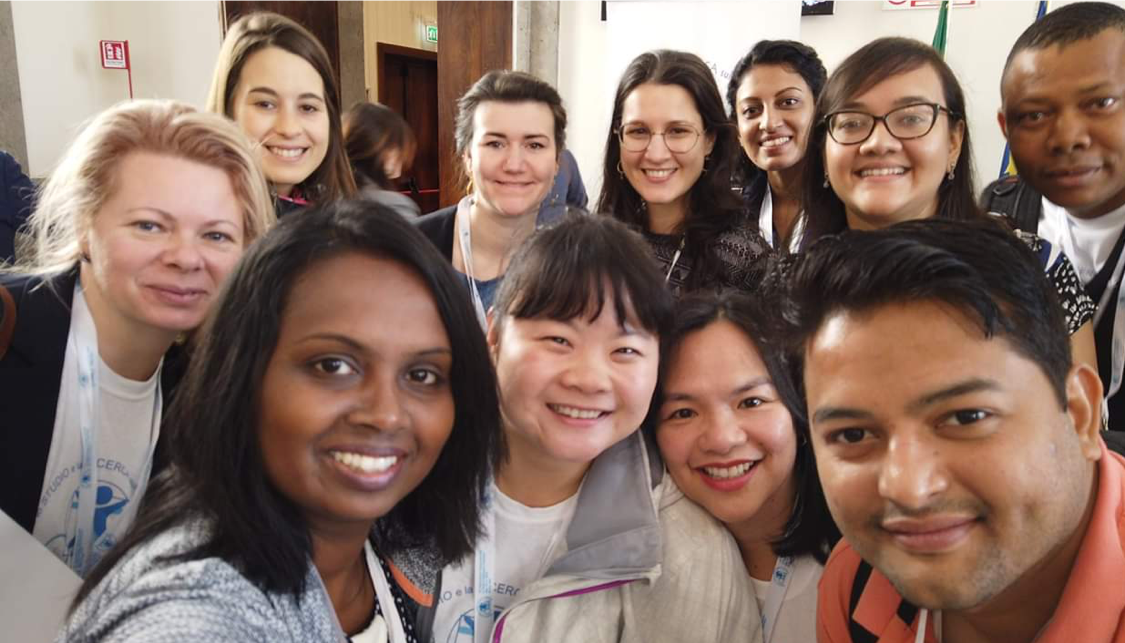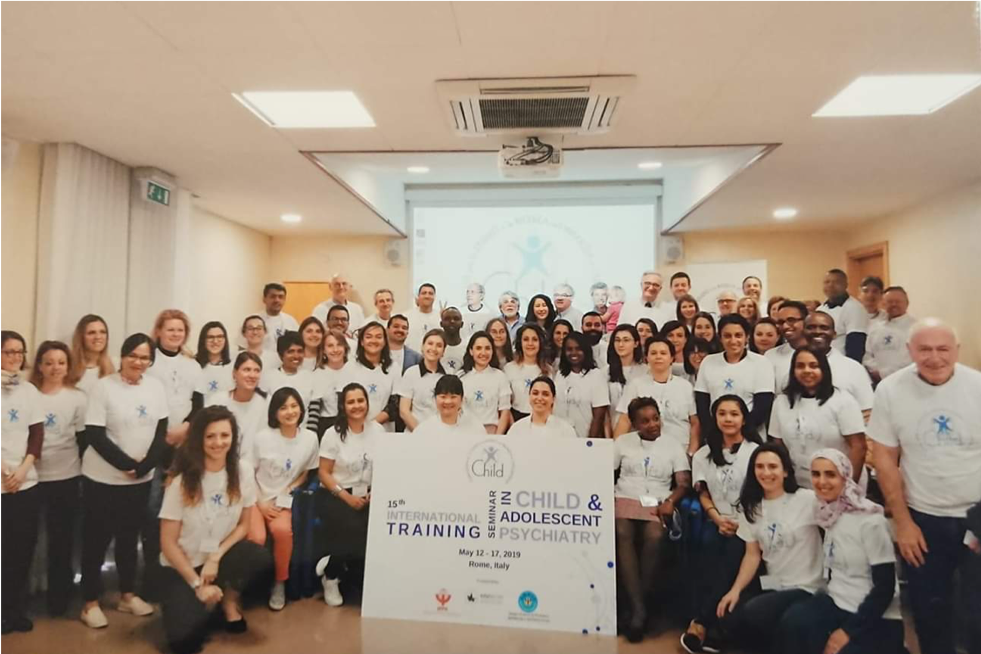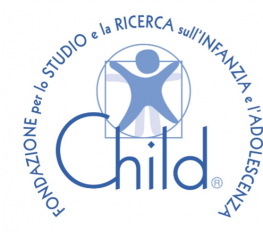The 15th International Training Research Seminar (TRS) in Child and Adolescent Psychiatry
By Jane Pei-Chen Chang

I was thrilled to participate in the 15th International Training Research Seminar (TRS) in Child and Adolescent Psychiatry (CAP), which was held from 12th to 17th of May, 2019 in Rome, Italy. In this article, I would like to share with you my exhilarating experience.
TRS was founded by Professor Ernesto Caffo of University of Modena and Reggio Emilia (Italy) and organized by Fondazione Child.
Professor Bennett Leventhal from the University of California San Francisco (UCSF, USA) was the main organizing faculty this year, and the rest of the faculty (20 in total) came from top universities from around the world. They are all leading experts in areas of CAP and research. Moreover, a total of 44 CAP trainees/psychiatrists from 26 countries (Afghanistan, Albania, Argentina, Armenia, Belgium, Costa Rica, Egypt, India, Indonesia, Italy, Japan, Jordan, Kenya, Lithuania, Malaysia, Nigeria, Philippines, Qatar, Russia, Slovakia, Spain, Sri Lanka, Sudan, Taiwan, Turkey, Uganda, UK) attended the seminar this year.
TRS consisted of 24 lectures and 4 colloquiums within the first 4 days and a 10-minute presentation of the current or proposed research projects of each trainee on the last day.
Within the 5-day training seminar, we also had 3 sessions of small group meetings, each session lasted 2 hours. The main goal of the small group meeting was to discuss about our proposed or on-going research projects and how to present our ideas/study to the rest of the trainees on the last day. The lectures ranged from fundamental talks on statistical analysis and diagnosis in CAP, to development of community interventions, to psychotherapy research methods, and to reviews on genetics and brain imaging.
On the other hand, the colloquiums consisted of topics on brain development activities, ethics, internet and technology, and genetics.
One of the most memorable lectures was by Professor Bruno Falissard, previous president of IACAPAP, about public health and mental health in children and adolescents. I think this is very important for all early career child and adolescent psychiatrists.
Professor Falissard emphasized that due to the resistance and stigma of psychiatry in the general public, the terms psychiatry and mental illness have been in the gray zone. Thus, we should clarify the definition of mental health, well-being, mental illness and psychiatry, and help the general public to recognize that psychiatry is a medical specialty and mental illness is just like all other diseases. In addition, child and adolescent mental health is now a major public health issue, therefore it is important to re-examine the role of the child and adolescent psychiatrist within society.

Another interesting talk was by Professor Michele Colajanni from the University of Modena and Reggio Emilia (UNIMORE) in Italy about how to manage our future when internet meets psychology. It is shocking to learn how much data we share online without awareness during each day of our lives, thus now is the time to think about how to use this internet information to make advancement in our lives, clinical practice and research.
Lastly, I had great fun during the colloquium with Professor Judy L. Cameron from the University of Pittsburgh, which is to build a brain with straws and pipe cleaners with your team and see how childhood protective factors and adverse events will affect how well the brain is structured, and our team built the sturdiest brain! This Brain Architecture Game is developed by The National Scientific Council (NSC) on the Developing Child Working For Kids: Building Skills. This section of NSC helps to work within communities to teach adults on how to help children build sturdy brain circuits for cognitive skills, social-emotional skills and stress management.
One of the main highlights of this year’s TRS is that we were able to visit the Ministry of Health of Italy (Ministero della Salute) to discuss how we can help improve services and research in CAP. This was super exciting for me to know that so many CAP professionals were in the room with policymakers with the same goal in mind, which is to improve child and adolescent psychiatry services around the world.
Although TRS ran on a tight schedule, there was always time for us trainees to explore Rome, throw coins in Trevi Fountain, and visit the Sistine Chapel and Vatican Museum together. I believe the most valuable thing that I have taken away from TRS is not only the knowledge of CAP from the lectures and colloquiums, but also the mentorship and friendship developed during TRS, which will definitely help me in my career as a child and adolescent psychiatrist. It’s definitely a work hard and play hard training seminar full of wonderful memories!
We the trainees are all looking forward to the IACAPAP World Congress in Singapore next year to present the findings of the research we have developed during this TRS and have more fun together at IACAPAP!

If you wish to apply in the future, visit: http://www.fondazionechild.it/

